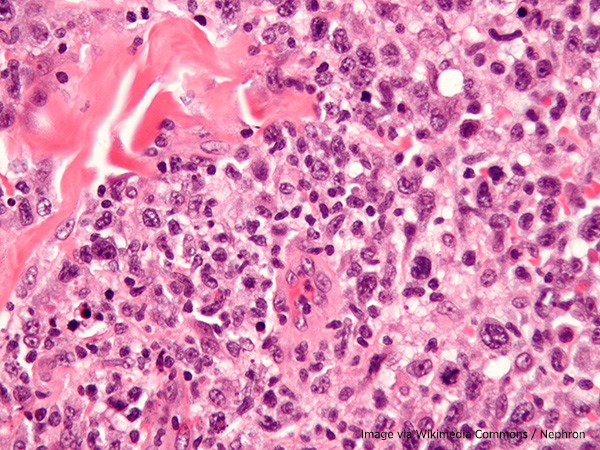A Next-generation Treatment for Waldenström Macroglobulinemia
The FDA approved zanubrutinib, a tyrosine kinase inhibitor, for this form of non-Hodgkin lymphoma.
The U.S. Food and Drug Administration (FDA) approved zanubrutinib (Brukinsa) for adult patients with Waldenström macroglobulinemia, a slow-growing form of non-Hodgkin lymphoma that originates in B cells.
Zanubrutinib is a next-generation tyrosine kinase inhibitor. It helps keep cancer cells from growing by blocking a protein known as BTK, which plays a role in the signaling pathway that promotes the survival and expansion of B cells. In 2015, the FDA approved the first therapy of this class, called ibrutinib, for Waldenström macroglobulinemia.

The efficacy of zanubrutinib was evaluated in a randomized, active control, open-label trial in which 201 patients carrying an L265P mutation in the MYD88 gene received either zanubrutinib or ibrutinib. The study also included a smaller group of 26 patients with no MYD88 mutation, or unknown mutation status, who received zanubrutinib. The FDA approval was based on the analysis of the zanubrutinib arm of the trial. A partial response or better was observed in 77.5 percent of patients, with an event-free duration of response at 12 months of 94.4 percent. For the subgroup of patients without the MYD88 mutation, a partial response or better was seen in 50 percent of participants.
Waldenström macroglobulinemia, also known as lymphoplasmacytic lymphoma, is a rare form of non-Hodgkin lymphoma diagnosed in about 1,000 to 1,500 people annually in the U.S. More than 90 percent of patients with Waldenström macroglobulinemia have the MYD88 L265P mutation.
The FDA decision was rendered on August 31, 2021.
